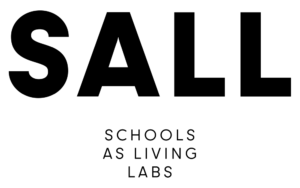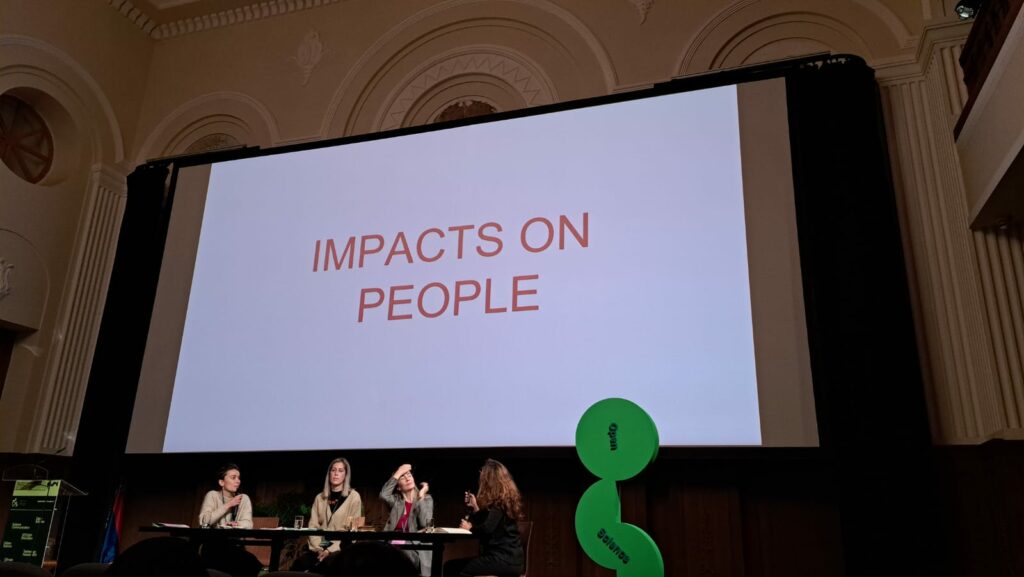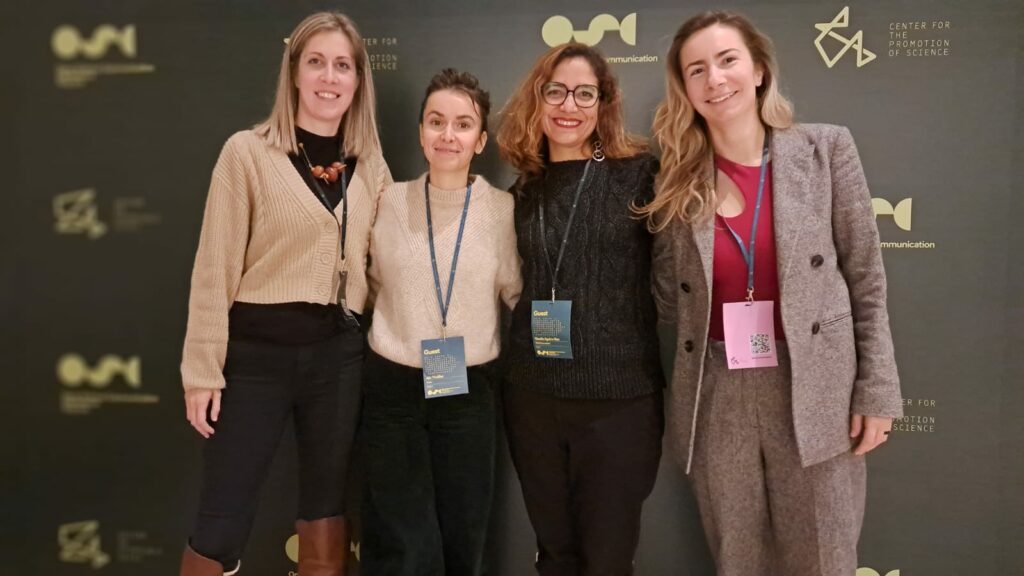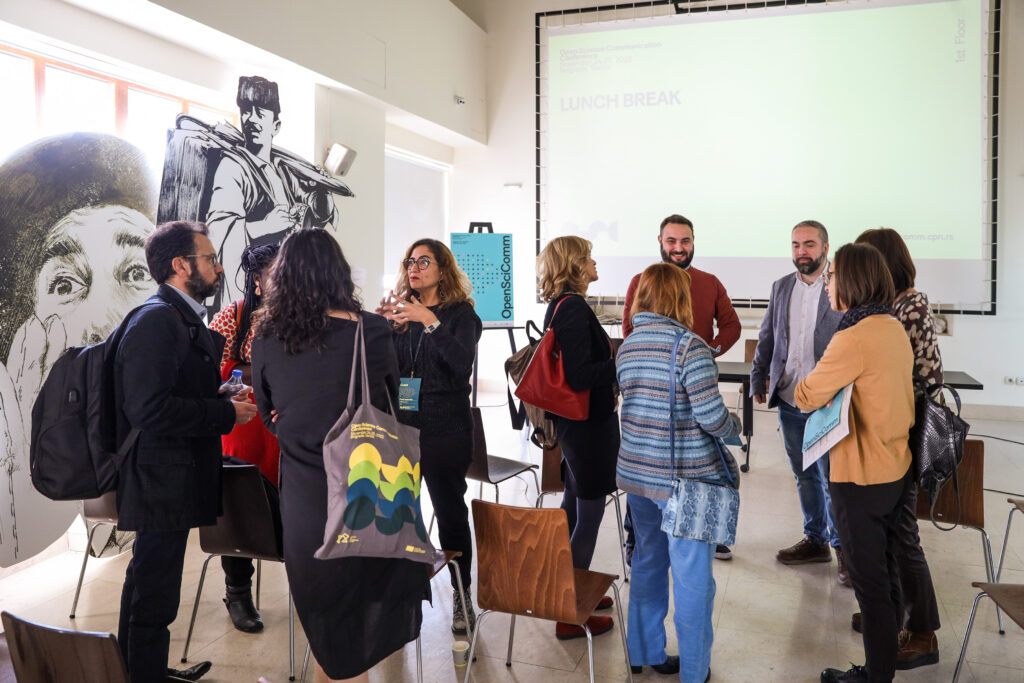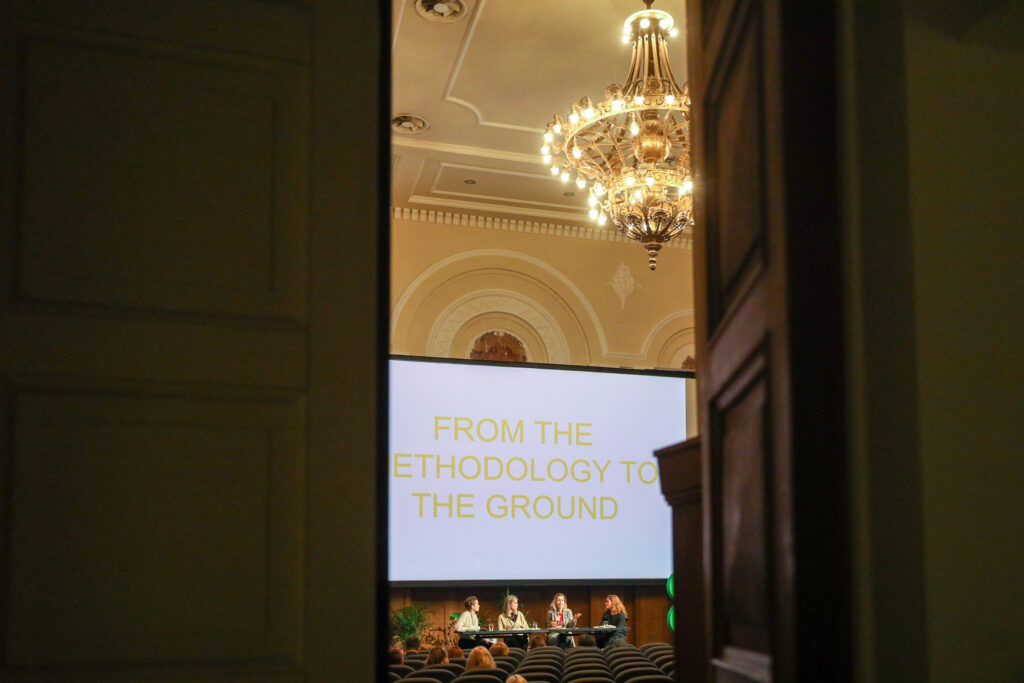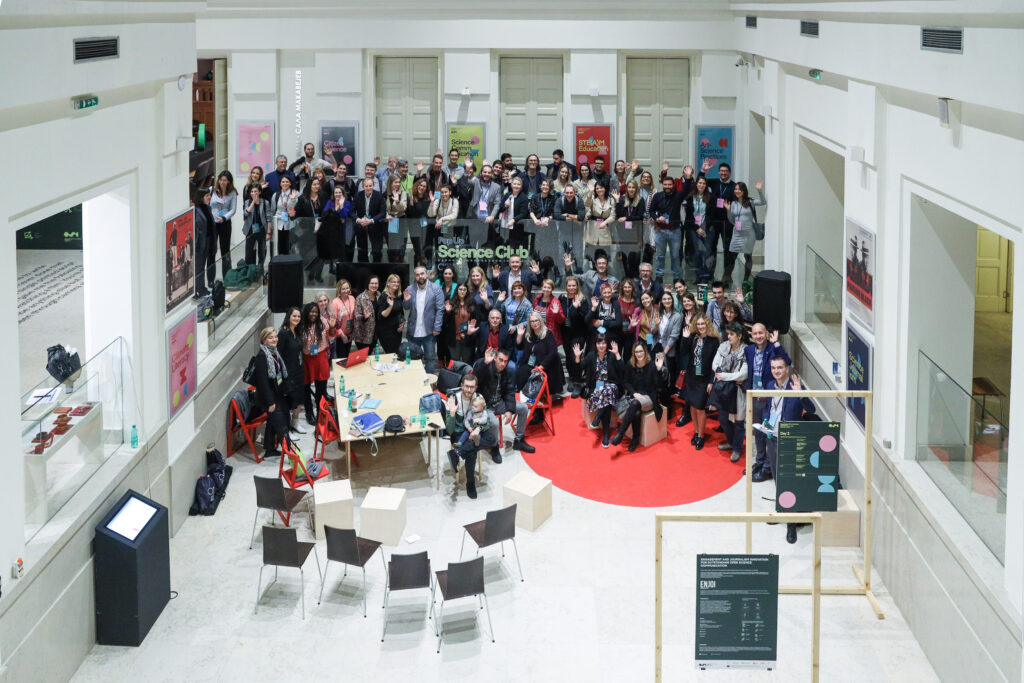The OpenSciComm conference was the occasion to present effective and reliable practices of science communication and engagement, to tackle critical subjects and topics in the field, and to facilitate the exchange of ideas and approaches among peers and practitioners.
The lineup of keynote speakers – among them modern science historian Vladimir Jankovic, the science education researcher Mairéad Hurley, the STS specialist and philosopher René von Schlomberg, and the historian, humanist, and semiotician Adriaan Eeckels – gave inspiring speeches on the notion of trust, openness, imagination and activism.
Participants were able to pick and choose between 30 parallel sessions. One of them was a session held by us, partners of the Schools As Living Labs project, on “Living labs and open schooling in science education”. We presented the SALL methodology, and how it was co-created, we introduced the Case Clinic session – a powerful exploration tool, and we discussed the challenges faced and opportunities encountered in the implementation of this methodology in schools across Europe. After 2 years of experimentation, it was time to reflect on and share with peers what we learned from introducing to schools a systematic way of thinking to solve real-life problems and enhance strong connections with the local community – in other words, to bring authentic questions to the schools. We also shed light on the benefits that living labs have on schooling in terms of motivation, learning, participation, sense of belonging and purpose, leadership strategies, tangible local impact, or community feeling.
The conference was an excellent platform for discussing what would be the next steps of such a methodology. Indeed, the journey isn’t completed and we need to keep going to be able to offer the best conditions for teachers and students to experiment with freedom in a safe environment and transform themselves into change-makers. Changes must also happen at the education system level to go beyond the planted seed and bring more authentic questions to always more schools.
